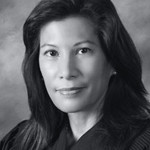Have a Thankful holiday!
‘King George’ Book Keeps Quotes Coming
Reports from the “King George” book signings keep making the rounds, including comments from a Berkley event where retired Los Angeles County Judge Charles Horan was quoted as saying “[Former Chief Justice Ronald M. George) never had enough power… I don’t know of a judge who hasn’t referred to him as King George. That was standard.”
The Courthouse News reports that “… while in California’s top judicial post, George was a principal force behind the centralization of California’s trial courts. Legislation in 1997 gave control of court rules and the roughly $3 billion court budget to California’s Judicial Council, where the chief justice chairs the meetings, votes and appoints 14 of the 21 voting members. The legislation also resulted in a huge growth in the personnel and power of the central court bureaucracy, where the chief justice is the staff’s ultimate boss.”
Judicial Friction Story in Sacramento Bee
Heads Up: New Court Committees Target Budget, Access
2014 L.A.S.C. Elections Featuring D.A. Hopefuls
For more about the election, and other candidates, check out the report here.
2014 Judicial Election Cycle Gets Started
‘Routine’ Bay Area Court Decision Taking Years
Courts Contracts Info Denied To Reform Judge
Judges Might Hear Cases Of Political Donors
Chief Justice Notices ‘Two-Tiered’ Court System
Anyone seeking evidence that California has created a two-tier system that denies justice to lower income residents can just ask the state’s chief justice. Echoing a host of earlier comments, Tani Cantil-Sakauye told KQED News that “The truth is, those who can will use other, private alternatives… but those of us who need to go to the court, who don’t have those resources, find ourselves frankly getting a second system of justice.”
